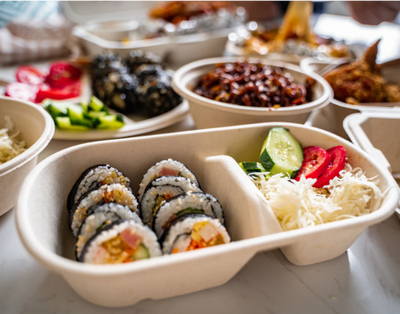The most common objection a company faces when considering a switch to eco friendly alternatives to plastic is simple: "It costs more." This is often true on a unit-by-unit basis. A plastic fork might cost $0.02, and a certified compostable fork might cost $0.05.
However, viewing this decision through the lens of unit cost is a fundamentally flawed way to run a modern, sustainable business. It fails to account for the total economic landscape of the 2020s, which includes brand valuation, regulatory risk, waste fees, and customer acquisition.
This article builds the irrefutable financial case for why investing in eco friendly alternatives to plastic is not an expense, but a strategic investment that delivers a powerful return on investment (ROI).
Myth vs. Reality: Recalculating the True Cost
|
Financial Factor |
Traditional Plastic (The Myth) |
Eco-Friendly Alternatives (The Reality) |
|
Unit Cost |
Low |
Initially Higher |
|
Waste Disposal (Tipping Fees) |
High (Landfill-bound; costs rise annually) |
Lower (Compostable items become valuable organic waste) |
|
Regulatory Risk |
High (Vulnerable to fines, bans, and taxes) |
Low (Compliance is guaranteed with certified products) |
|
Brand Equity & Loyalty |
Low (Reputational risk from plastic use) |
High (Increases loyalty; attracts premium-paying customers) |
|
Marketing & Acquisition |
Requires paid promotion to acquire customers |
Generates free, positive social media marketing |
The ROI Pillar 1: Reducing Externalized Costs
A truly sustainable business brings external environmental costs back in-house and works to eliminate them.
-
Lowering Waste Bills: As cities prioritize zero-waste goals, landfill tipping fees increase. Diverting the massive volume of plastic packaging and cutlery to commercial composting facilities (using certified products) can dramatically reduce a company's total trash volume, leading to lower collection fees.
-
Avoiding the "Plastic Tax": Governments worldwide are implementing taxes on single-use plastics to fund cleanup efforts. Investing in certified eco friendly alternatives to plastic allows a business to completely bypass these future taxes and fees, protecting their profit margins long-term.
The ROI Pillar 2: Brand Valuation and Customer Acquisition
Your commitment to sustainable business practices directly impacts how much customers are willing to pay for your products and how many new customers you attract.
-
Premium Pricing Power: Studies show that a majority of consumers, particularly younger demographics, will pay more for products and services from a brand they perceive as ethical. Choosing EQUO’s coffee ground utensils or sugarcane straws validates that ethical commitment, giving you the power to maintain higher prices.
-
Marketing ROI: Content focused on sustainability—like our 12 blog posts—has a high social sharing rate. Customers organically promote brands that demonstrate a strong environmental mission. This free, positive word-of-mouth is far more valuable than paid advertising dollars. Your packaging is your marketing.
The ROI Pillar 3: Stability and Supply Chain Resilience
Reliance on fossil fuel derivatives (plastic) creates a volatile supply chain vulnerable to global oil price spikes and geopolitical instability.
-
Stable Resource: Plant-based eco friendly alternatives to plastic (made from agricultural waste like sugarcane and coffee grounds) use renewable resources that are more stable and locally sourced than petroleum. This resilience protects a sustainable business from global supply shocks.
-
Innovation Over Stagnation: Brands that embrace the challenge of sustainability are forced to innovate, leading to better product design and smarter operational efficiencies, ultimately making them more competitive than those clinging to outdated materials.
The choice to invest in eco friendly alternatives to plastic is a necessary strategic move that aligns with evolving market forces, regulatory pressure, and core consumer values. It's the only path to building a profitable, resilient, and truly sustainable business for the future.


